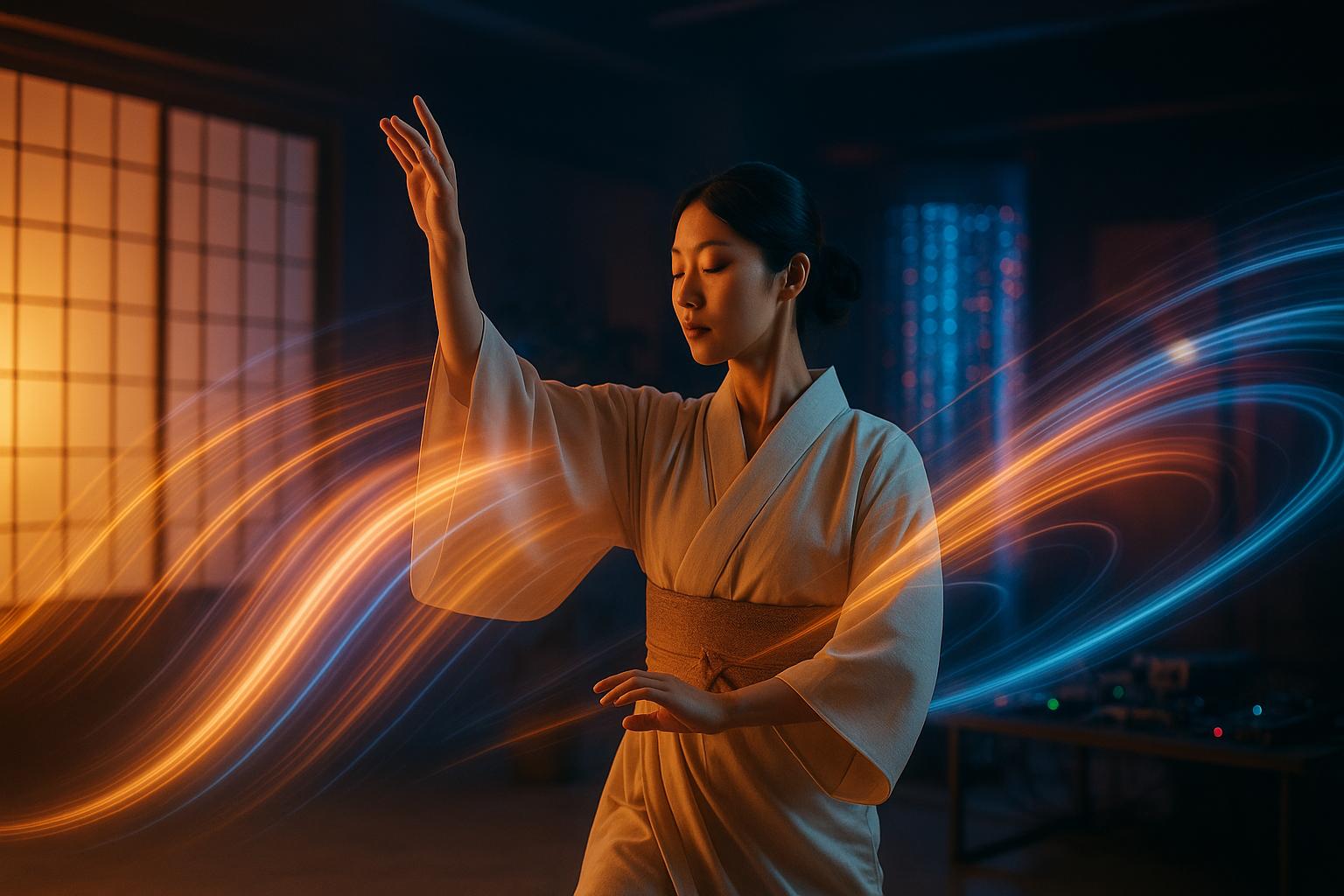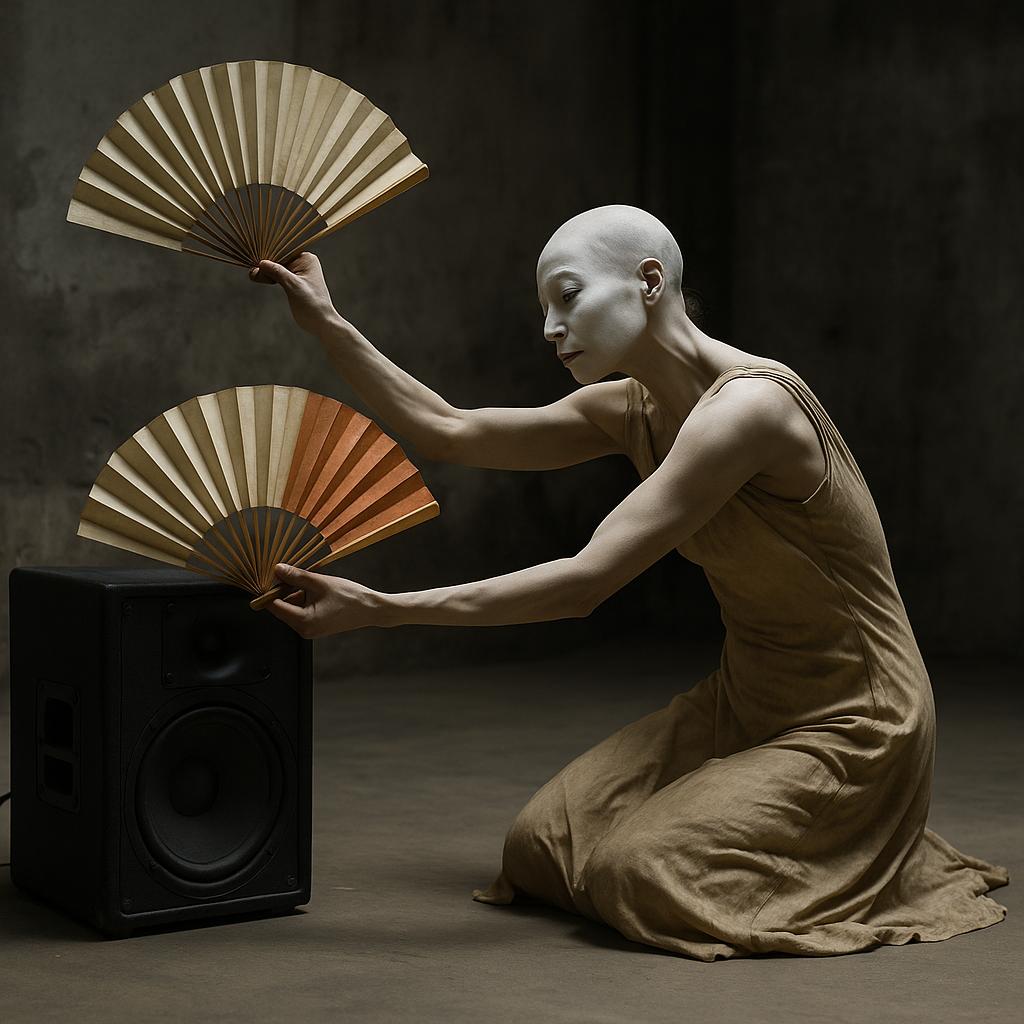A Journey Beyond the Thought-Centered World
We live in an era where logic, algorithms, and optimization shape how we work, learn, and connect. But in this pursuit of efficiency, a vital part of the human experience - our bodies, the original instruments of sensing, moving, and meaning - has faded into the background.
We were never meant to live only in our heads. We are beings of rhythm, gesture, and breath. True awareness begins not with ideas, but with grounded, embodied experience. Rediscovering this connection isn’t nostalgia - it’s essential. Otherwise, we risk a future where we adapt to the limitations of our machines, rather than develop technologies that support the full richness of being human.

The Forgotten Language: Embodied Understanding
For most of human history, body and mind were never seen as separate. People danced, sang, and moved to understand themselves and their world. Today, science is only beginning to confirm what earlier cultures lived naturally: that insight and creativity arise not just from abstract thought, but through presence and lived, physical experience.
Gestures, posture, and movement are not mere byproducts - they are how we sense, learn, and make meaning. Overlooking this reality narrows our creativity and connection, limiting the potential of both individuals and the tools we create.
Supporting Theories and Insights
David Rokeby: The First Movement-to-Sound System
In the 1980s, artist David Rokeby created Very Nervous System - a pioneering installation that translated human movement into real-time sound. Unlike later systems rooted in symbolic interpretation or gesture classification, Rokeby’s work emphasized experience: sound as an immediate, bodily conversation between human and environment. Participants didn’t learn a system; the system adapted to their organic motion, creating an intuitive space for presence and discovery. FanRows continues this lineage, but using today’s technology to make such embodied exploration accessible to everyone, anywhere.
Neural Resonance Theory (NRT): Structural Intuitive Understanding
Brains seek harmony between inner and outer rhythms. “Structural intuitive understanding” is built through direct experiences of flow, not just analysis.
FanRows draws on this: by turning movement into sound and feedback, we explore rhythm and structure playfully, without labeling or interpreting inner states.
Howard Gardner: Multiple Intelligences
Humans express intelligence in many ways - musically, physically, spatially. FanRows invites you to use all of these forms, transforming movement and rhythm into creative exploration.
C.G. Jung: Individuation and Inner Wholeness
Growth means integrating all parts of ourselves, not just the logical or visible. FanRows offers a nonverbal space for reconnection and discovery, supporting insight and self-awareness through embodied expression.
Mihaly Csikszentmihalyi: Flow State
Full presence emerges when action and awareness merge. FanRows is designed to invite this state, making it easier to access the joy and focus of pure, creative movement.
Rosalind Picard: Technology That Listens
Technology can be designed to follow - not mimic - human expressiveness. FanRows creates responsive environments where movement guides the experience, not algorithms interpreting emotions.
Embodied Cognition: Knowing Through Movement
Thinking and feeling happen through action. In FanRows, the body becomes a channel for presence, intuition, and discovery.
The Call for New Experiences
Modern life often demands stillness and optimization, not spontaneity. If we are to remain fully human, we must create spaces that value movement, rhythm, and expression as central - not peripheral - to learning, well-being, and creativity.
FanRows is such a space. It isn’t another lecture or theory, but a living experiment - a place where technology supports the body’s own rhythm and meaning.
FanRows: An Experiment in Embodied Resonance

FanRows began with a question: What if movement and sound could meet in a playful, intuitive space - one that helps people reconnect with themselves and each other?
It is not a product to master, or a game to win. There are no fixed rules, only the freedom to explore. Raise an arm, shift your posture, let motion reshape sound and light. FanRows invites everyone to discover the intelligence of their own movement and the power of creative presence.
Through technology, real-time feedback, and openness, FanRows becomes a mirror for embodied exploration - a journey into rhythm, coordination, and connection.
A Vision for the Future
As technology accelerates, let’s not leave the body behind. To be human is to move, to feel, and to resonate - together. FanRows offers a bridge: a space where embodiment and technology amplify what it means to be alive.
Every FanRows session is a step toward rediscovering the intelligence within us - a reminder that creativity, guided by the heart and body, can lead us home.
The FanRows Team

Next page The Future of Creative Connection